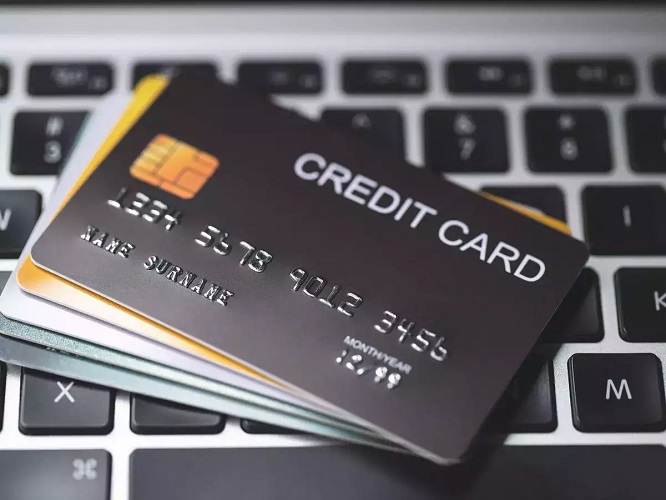Overseas credit card spending will be subject to the LRS and a 20% TCS. This measure aims to regulate and monitor overseas transactions made by individuals using credit cards.
What is TCS on Credit Cards?

TCS on credit cards refers to Tax Collection at Source imposed by the government on transactions made using credit cards. TCS is a tax collection system where banks collect and remit a percentage of tax during transactions. The government applies 20% TCS on international credit card usage to monitor and ensure compliance with overseas expenses.
But Why 20% TCS on the Credit Card?
The finance ministry issued a notification stating that the Foreign Exchange Management (Current Account Transactions) (Amendment) Rules, 2023, will incorporate international credit card expenses into the LRS starting from July 1. Rule 7 of the Foreign Exchange Management (Current Account Transactions) Rules, 2000 has been omitted, thereby including the usage of international credit cards for expenses incurred during visits abroad under the LRS.
Immediate Implementation and Budget Announcement:
The notification brings credit card transactions made outside India under the ambit of the LRS with immediate effect. This means that individuals will now be subject to the higher TCS rate, as announced in the Budget for 2022-23. Credit card usage abroad was not included in the LRS, which only covered debit cards, forex cards, and bank transfers.
Impact on Travel and Overseas Expenses:

Credit card users traveling abroad must consider the 20% TCS on their expenses. The aim of this move is to regulate and monitor foreign spending by individuals and ensure compliance with financial regulations. Travelers must stay informed to manage finances during international trips without any surprises.
Impact of 20% TCS on Social Media.
People and tax experts voice concerns on social media about 20% TCS on international credit card usage.
A Twitter user expressed concern to Finance Minister Nirmala Sitharaman about the impact of TCS on business travelers’ expenses. They argued that imposing TCS on employees’ names instead of the company name serves no purpose. The user further criticized the proposed 20% TCS rate as excessively high.
The user urged a reconsideration of the provision to monitor overseas payments while maintaining ease of doing business.
Key points of FEMA Notification and implications to know.
- Credit card transactions abroad will be subject to the annual limit of $250,000 under the Liberalised Remittance Scheme (LRS).
- Transactions exceeding the LRS limit will require prior approval from the Reserve Bank of India (RBI).
- From July 1, international credit card transactions will have a 20% TCS rate, currently at 5% till June 30.
- The LRS now includes credit card usage by Indian users for foreign visits, overseen by the RBI.
- Higher TCS rates may cause cash flow issues for high-net-worth HNIs and increased tax liabilities for individuals.
- Experts are seeking clarity from the government on distinguishing between international online purchases and credit card spending abroad.
Which transactions does FEMA include?
The recent FEMA notification incorporates various types of payments made through international credit cards while abroad, such as air travel, entertainment, hotel bookings, and food expenses. Transactions exceeding $250,000 (approximately Rs 2.06 crore) will require prior approval.
Personal transactions, including expenses, gifts, and medical treatment, now have a $250,000 limit, according to Prakash Gadia.
Experts anticipate a decrease in the value of international credit card transactions due to the 20% TCS rule.
Conclusion.
In summary, starting from July 1, using international credit cards for spending outside India will be subject to a higher TCS rate of 20%. This change is because such transactions will now fall under the LRS, allowing for increased TCS collection.
Previously, a 5% TCS rate was applicable, except for medical and education-related transactions, but now it will be uniformly 20% from July 1. Indian residents can remit up to $250,000 per year without RBI approval under the LRS.
Previously, international credit card usage during foreign trips or online purchases did not count towards the overall LRS limit. However, the recent notification includes these transactions in the $250,000 limit, expanding the monitoring and regulation of overseas credit card spending.
Also, Check our Blog on Brokerages Estimate 68% rise in SBI Stock Price.
Want to Learn How to do Trading in Live Market? With systematic Trading Strategy on the Day of Expiry. *Click Here To Know*
Disclaimer: The information provided in this Blog is for educational purposes only and should not be construed as financial advice. Trading in the stock market involves a significant level of risk and can result in both profits and losses. Spider Software & Team does not guarantee any specific outcome or profit from the use of the information provided in this Blog. It is the sole responsibility of the viewer to evaluate their own financial situation and to make their own decisions regarding any investments or trading strategies based on their individual financial goals, risk tolerance, and investment objectives. Spider Software & Team shall not be liable for any loss or damage, including without limitation any indirect, special, incidental or consequential loss or damage, arising from or in connection with the use of this blog or any information contained herein.






